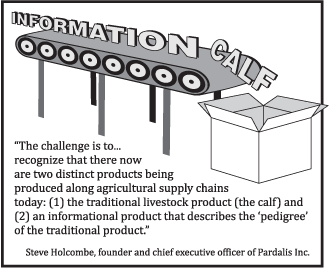USDA Takes Action on Mandatory Country of Origin Labeling
 Tuesday, August 5, 2008 at 3:30PM
Tuesday, August 5, 2008 at 3:30PM The rule covers muscle cuts and ground beef (including veal), lamb, chicken, goat, and pork; perishable agricultural commodities (fresh and frozen fruits and vegetables); macadamia nuts; pecans; ginseng; and peanuts -- as required by the 2002 and 2008 Farm Bills. USDA implemented the COOL program for fish and shellfish covered commodities in October 2004.
Commodities covered under COOL must be labeled at retail to indicate their country of origin. However, they are excluded from mandatory COOL if they are an ingredient in a processed food item.
USDA has also revised the definition of a processed food item so that items derived from a covered commodity that has undergone a physical or chemical change (e.g., cooking, curing, smoking) or that has been combined with other covered commodities or other substantive food components (e.g., chocolate, breading, tomato sauce) are excluded from COOL labeling.
Food service establishments, such as restaurants, lunchrooms, cafeterias, food stands, bars, lounges, and similar enterprises are exempt from the mandatory country of origin labeling requirements.
The rule outlines the requirements for labeling covered commodities. It reduces the recordkeeping retention requirements for suppliers and centrally-located retail records to one year and removes the requirement to maintain records at the retail store. The law provides for penalties for both suppliers and retailers found in violation of the law of up to $1,000 per violation.
The rule will become effective on Sept. 30, 2008. To allow time for covered commodities that are already in the chain of commerce -- and for which no origin information is known or been provided -- to clear the system, the requirements of this rule will not apply to covered commodities produced or packaged before Sept. 30, 2008.
The rule prescribes specific criteria that must be met for a covered commodity to bear a "United States country of origin" declaration. In addition, the rule also contains provisions for labeling covered commodities of foreign origin, meat products from multiple origins, ground meat products, as well as commingled covered commodities.
USDA plans to conduct education and outreach activities during the six months following the rule's effective date to help the industry comply with the law.
The full text of the interim final rule will be published in the Aug. 1, 2008, Federal Register.
Copies of the interim final rule and additional information can be found at: http://www.ams.usda.gov/COOL.


